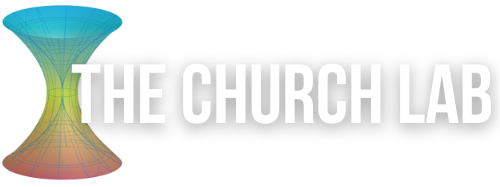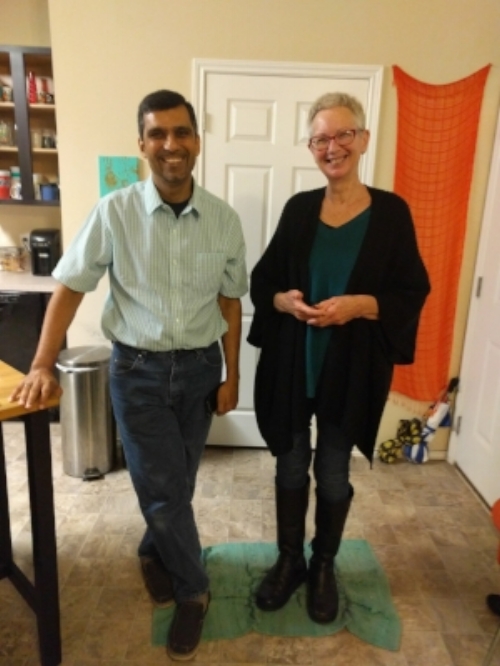Qamar Zafar, Jana Sarnowski, Rob Sarnowski, Carrie Graham
Clergy collar on, I walked into the annual gathering of the Ahmadiyya Muslim Community in Harrisburg, Pennsylvania. Our very own Qamar Zafar had graciously invited me. My friends Jana and Rob would join me that evening for the interfaith dinner, but this was my time to check out what this community was up to beforehand. I was unsure what to expect; below is a window into the highlights of my day at the Jalsa Salana.
Almost before I could get myself into the door, I was greeted with expectant smiles by new friends I’d never met. They gave me a gift as a guest and then some wished to guide me to the ladies’ section of the gathering so I could observe what they were up to. Others warmly insisted that I go to the exhibition hall to be guided through a general tour of the Ahmadiyya Muslim community’s history. One tour guide passed me to the next, each one eager to identify the peace seeking goodness of their tradition, if not outright overlaps in the endeavors of Christianity and Islam.
I was so relieved to see Qamar. He dropped whatever he was doing to come greet me when I let him know I was at the gathering. I asked polite general questions of the tour guides, but the trust built among the TCL community allowed me to ask any questions that came to mind if Qamar was present. I didn’t worry about accidentally being rude or offending someone. Though at one point I did ask a theological question that stumped someone; in a quick moment, a seminary student was summoned to address my curiosities. I was called from such interactions to do a live interview for the Jalsa Salana livestream channel, finishing just in time for my friends to arrive.
Qamar gave Jana and me hijabs (head coverings) only if we wished to “fit in” a bit more. I wore mine when Jana and I decided to pay a visit to the ladies’ sessions. Qamar already had a new friend, Touba, assigned to host us in the ladies’ area of the gathering. Jana and I got along with Touba instantly, and we found ourselves inspired by the talk we heard about female empowerment via education and purdah (modesty, including in clothing).
The interfaith dinner that evening showcased social and political leaders pursuing interfaith peace. One of the most moving moments was when a Jewish professor tearfully thanked the Muslim communities for being such wonderful advocates in instances like the vandalism of Jewish cemeteries.
The message of ongoing efforts of peacemaking was clearly communicated as an always-central theme of the Ahmadiyya community, and one that seems to inspire the behaviors and decisions of its members. However it was the excellent level of hospitality that was striking for myself and my friends. We marveled at how considered and cared for we were as honored guests, sometimes not even knowing how to respond to such thoughtful consideration for our orientation, learning and enjoyment of the events around us. This is perhaps especially meaningful for the multiple parts of the gathering we attended that were not necessarily built for interfaith guests; our observance was greeted with enthusiastic smiles, if not endearing curiosity.
Once again interfaith work has led to adventures in learning about another faith community by being welcomed into the midst of this community. It is only with Qamar’s encouragement, anticipatory consideration of our needs and with literally the entire Ahmadiyya Muslim community’s warmth, curiosity and care that even in the midst of theological and lifestyle differences, we were able to celebrate our friends’ convictions unencumbered.











